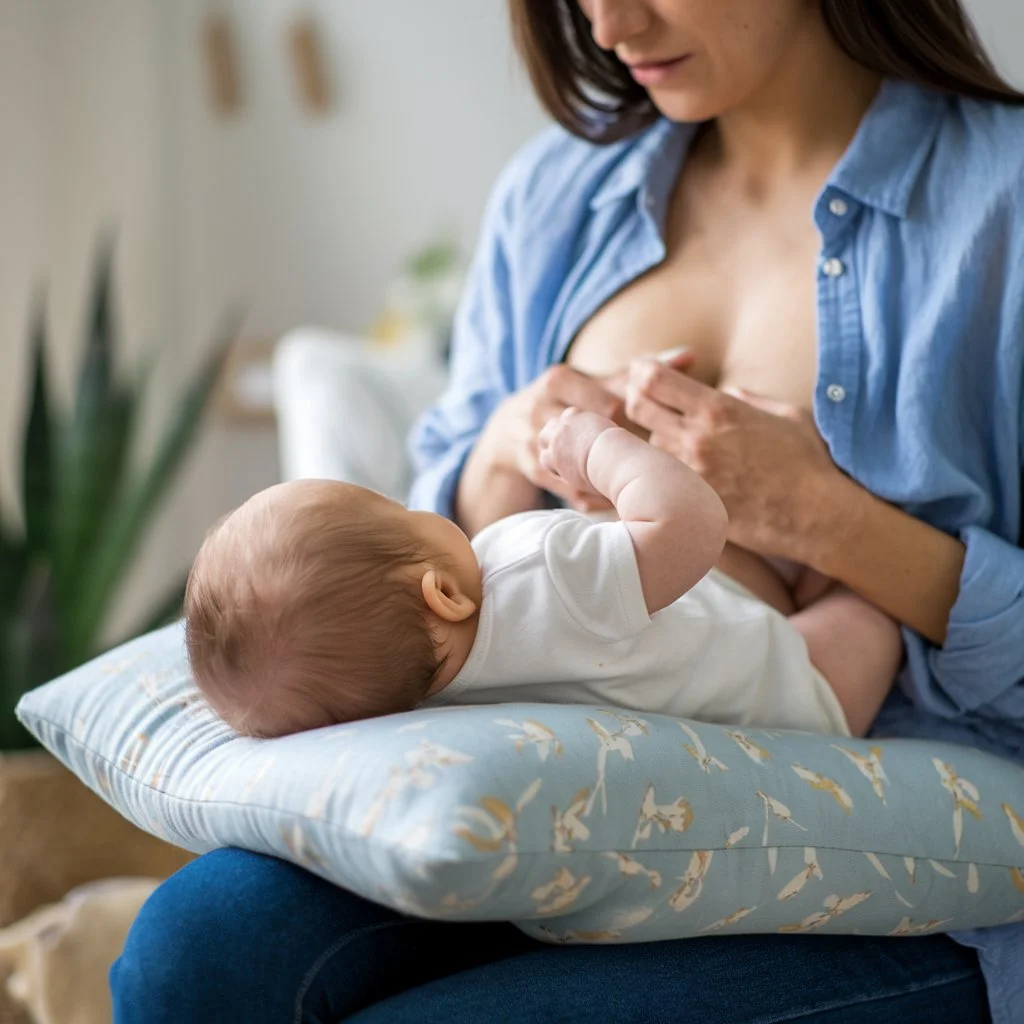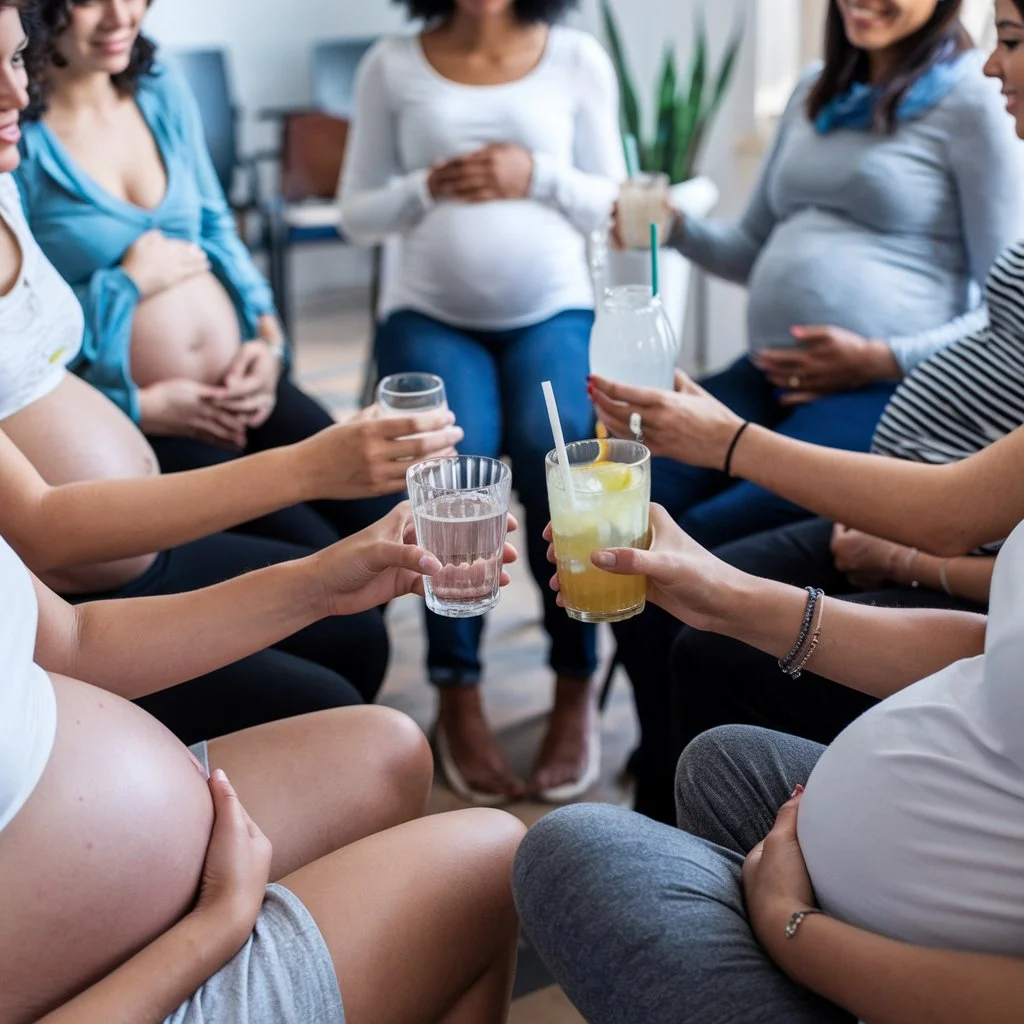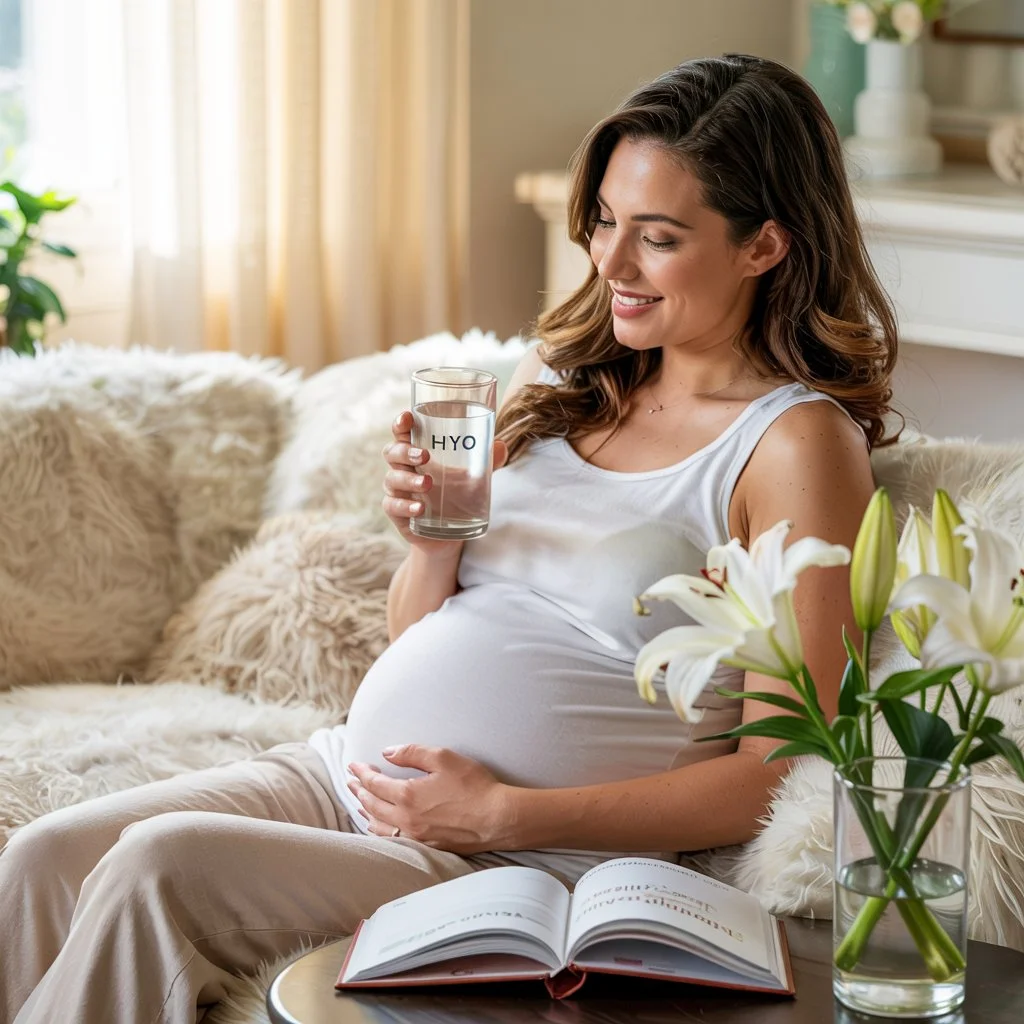The Centers for Disease Control and Prevention (CDC) advises that pregnant women avoid all forms of alcohol, including non-alcoholic beverages that may still contain trace amounts.
If you are pregnant and unsure about which functional beverages are safe, please consult your healthcare provider.
Why “Non-Alcoholic” Doesn’t Always Mean Alcohol-Free
Non-Alcoholic (<0.5% ABV)
This is the label you’ll see most often—and the one you’ll probably pay the most attention to when trying to cut back on alcohol. Technically, a drink only needs to have 0.5% ABV or less to legally qualify as “non-alcoholic.” But let’s be honest: 0.5% is not zero, so the label can be a bit misleading.
If you find a hiyo drink labeled “N/A” or “non-alcoholic,” take a close look at the ABV on the label. More often than not, it will say something like “Contains less than 0.5% alcohol by volume.” While you might not feel tipsy after drinking a few of these, it’s still smart to consult your healthcare provider—especially if you’re pregnant, in recovery, or have health concerns.
(Fun fact: 0.1–0.2% ABV is roughly the same amount naturally found in things like bread and monk fruit, due to natural fermentation.)
Alcohol-Free (0.0% ABV)
Sometimes labeled as “0.0%”, these beverages contain no detectable amount of alcohol. That doesn’t mean they contain absolutely zero alcohol, but the level is so low it doesn’t register in lab testing.
These are your best bets if you’re looking to avoid alcohol completely.
Alcohol Removed
These pregnancy-safe relaxation drinks pregnancy safe are either made with a reduced alcohol content or start as regular alcoholic beverages with the alcohol removed during production. This is usually done through filtration or a chemical process, resulting in a non-alcoholic version.
However, it’s important to note that alcohol can never be 100% removed. Some of these drinks during pregnancy may still contain more than 0.5% ABV, which blurs the line between “non-alcoholic” and “slightly alcoholic.”
Again, be sure to check the ABV and consider avoiding these during pregnancy or in situations where even a trace of alcohol is a concern.
4. The Medical Consensus: Zero Alcohol During Pregnancy
Health authorities like the Centers for Disease Control and Prevention (CDC), the American College of Obstetricians and Gynecologists (ACOG), and the World Health Organization (WHO) all recommend that pregnant women avoid alcohol entirely. [Can a Pregnant Woman Take Alcoholic Drinks]
Alcohol consumption is not safe during pregnancy. Before grabbing a bottle labeled “non-alcoholic,” it’s important to understand how alcohol labeling works. Hiyo Drinks that are labeled as “non-alcoholic” can still contain trace amounts of alcohol, up to 0.5% ABV. While that might seem negligible, no amount of alcohol is considered safe during pregnancy. That’s why reading labels carefully is essential.
These functional beverages may also contain more ethanol than what’s stated on their labels due to inconsistencies in manufacturing or labeling standards. Since there’s no known safe threshold for alcohol during pregnancy, steering clear of all non-alcoholic beverages with even trace alcohol content helps eliminate any risk of Fetal Alcohol Spectrum Disorders (FASD).
While moderate consumption of non-alcoholic beverages may not pose a risk to breastfed infants, waiting a short period before nursing, if such non alcoholic drinks are consumed, can further reduce any potential alcohol exposure to the baby.
The Hidden Risk: What’s Inside Hiyo Besides Alcohol?
Adaptogens and Pregnancy Safety
One ingredient to look out for on labels is adaptogens—plant-based substances like functional mushrooms or pregnancy-safe herbs often added to wellness beverages and wellness products to help reduce Natural stress relievers for pregnant women or elevate mood. [Can pregnant women drink hiyo?]
Some adaptogens are marketed as offering a “buzz” similar to alcohol, but their safety during pregnancy is not well researched. If you’re pregnant or trying to conceive, it’s best to use adaptogens to avoid in pregnancy as a precautionary measure.
Caffeine
If your beverage contains caffeine, it might interfere with your sleep, especially if consumed later in the day. On the flip side, some relaxation drinks pregnancy safe include L-theanine, a compound derived from decaffeinated green tea extract that has been clinically shown to support restful sleep. For example, Hiyo features L-theanine, which offers a natural lift without the jitters or sleep disruption associated with caffeine.
Other Pregnancy-Safe Herbs or Active Ingredients
Non-alcoholic wines and beers are often marketed as calming alternatives, but many still contain trace amounts of alcohol. While these amounts are small, no alcohol is considered completely safe during pregnancy. For full peace of mind, opt for 100% alcohol-free beverages.
Beyond alcohol content, take a close look at other ingredients in these drinks during pregnancy. Some may include added sugars, preservatives, or herbal drinks extracts that don’t align with your pregnancy health goals.
When in doubt, talk to your healthcare provider to ensure you’re making informed choices that support you and your baby’s well-being.
Celebrate Safely
Non-alcoholic cocktails—crafted from herbs, fruit juices, and sparkling adaptogenic drinks—can be a festive and safe way to join in on celebrations. However, always check for unpasteurized juices or other hiyo ingredients that may not be recommended during pregnancy.[Can I Have a Cocktail While Pregnant]
Whether you’re enjoying a quiet night at home or celebrating at a baby shower, a thoughtfully made alcohol-free cocktail can help you feel included and cared for. Don’t hesitate to ask about ingredients—or better yet, create your blends at home for a personalized, safe, and delicious experience.
What About During Breastfeeding?

Breastfeeding exposure to alcohol has not been fully established. However, some reported cases include impaired motor development, decreased milk intake, disrupted sleep patterns, and hypoglycemia in infants.
As mentioned in a previous Mothers’ Update, it is recommended that mothers who consume alcohol wait a specific amount of time before breastfeeding, based on a standard algorithm.
A recent study found that ethanol can be detected in breast milk after consuming large quantities (up to 1.5 liters) of non-alcoholic beer containing 0.41% to 0.42% alcohol by volume. In this study, two women had ethanol levels of 0.0021 g/L (detection limit 0.0006 g/L) immediately after drinking. However, ethanol was undetectable in their breast milk after one hour.
The researchers concluded that such low levels are unlikely to pose harm to a breastfed infant, and moderate consumption of non-alcoholic beverages is not expected to have adverse effects. Therefore, it may not be necessary to wait the full duration recommended by standard breastfeeding guidelines in such cases.
That said, due to variability in alcohol content across non-alcoholic beverages and the general lack of comprehensive safety data, it may still be wise to briefly refrain from breastfeeding after consumption as a precaution.
Safe Alcohol Alternatives to Hiyo for Expectant Mothers

If you’re craving a mocktail, there’s no shortage of non-alcoholic mixers to help craft a hiyo drink that’s both delicious and satisfying. Just make sure the mixers you choose contain 0 percent alcohol. [Can Pregnant Women Have Hiyo]
If you’re at risk for gestational diabetes, it’s especially important to check the sugar content. Common mixers like syrups and monk fruit juices can be high in sugar, but there are low-sugar drink options available for pregnant women options available, or you can simply use less when mixing to control intake.
A Note on Tonic Water
When it comes to tonic water, be aware that some brands contain quinine. Quinine is an anti-parasitic drug used to treat diseases like malaria, and it’s added to tonic water for its signature bitter taste.
[Can Pregnant Women Drink Hiyo While Pregnant?] One study found that quinine can cross the placenta and enter the fetus’s bloodstream, which may pose a risk during pregnancy. Unless you’re being treated for malaria, it’s best to avoid quinine while pregnant or breastfeeding. Even newborns have experienced withdrawal symptoms after being exposed to quinine through tonic water.
We get it—there’s a lot to think about, and it can sometimes feel overwhelming. But it’s all about making informed choices, especially for those who are pregnant or simply want to avoid alcohol.
Keep in mind: No non-alcoholic alternative will quite match the “sparkle” of a real alcoholic beverage, but some of these options come very close.
Expert Tips for Navigating Non-Alcoholic Beverages During Pregnancy
Alcohol consumption during pregnancy can lead to physical, cognitive, and behavioral complications in exposed newborns, collectively known as Fetal Alcohol Spectrum Disorder (FASD). The most severe form of FASD is Fetal Alcohol Syndrome (FAS), which is characterized by distinctive facial abnormalities—such as a flat midface, small palpebral fissures, a smooth philtrum, and a thin upper lip—as well as growth retardation and serious neurodevelopmental impairments.
There is no known safe level of alcohol during pregnancy, and currently, there is no medical safeguard that can protect against alcohol-induced damage to the developing fetus. This is why most physicians and leading health organizations recommend complete abstinence from alcohol throughout pregnancy.
However, avoiding alcohol can be especially challenging for individuals who were social drinkers or struggling with alcohol use before pregnancy. In some cases, expectant mothers may turn to “alcohol-free” or “non-alcoholic” pregnancy beverage alternatives to traditional alcoholic drinks, believing these options to be entirely safe.
What the Research Says
To date, no studies have directly assessed the safety of non-alcoholic beverages during pregnancy. However, there is growing concern that such wellness beverages may contain higher levels of ethanol than expected.
According to a study conducted by Motherisk, 13 out of 45 non-alcoholic beverages (29%) contained higher ethanol levels than advertised. Alarmingly, some drinks that claimed to be “0.0% alcohol” were found to contain up to 1.8% alcohol by volume.
The extent of maternal and fetal exposure to these levels remains unclear, and the clinical significance of these findings has yet to be fully determined. However, given the possibility of cumulative exposure, especially if a pregnant individual consumes multiple servings under the assumption they are completely alcohol-free, there is a real risk of inadvertent harm.
Bottom Line
Until more safety data becomes available, the most cautious and responsible approach is to avoid non-alcoholic beverages during pregnancy altogether. Doing so eliminates any risk of fetal alcohol spectrum disorder and ensures you’re making the healthiest choice for both you and your baby.
Conclusion of Can Pregnant Women Drink Hiyo
In conclusion, pregnant women should avoid consuming Hiyos or any other non-alcoholic beverage that contains even trace amounts of alcohol. Pregnant women shouldn’t consume even a small amount of alcohol during pregnancy. Fetal alcohol spectrum disorders (FASD) can result even from minimal alcohol consumption during pregnancy.
Thankfully, many Pregnancy cravings and beverage options are 100% alcohol-free and safe for expectant mothers. If you want peace of mind, always choose completely alcohol-free beverages. If you’re unsure whether a particular drink is safe during pregnancy, we strongly recommend consulting your healthcare provider to ensure it supports both your health and your baby’s development.
If you’d like more information about safe beverage choices during pregnancy, feel free to reach out or leave a comment below.
Frequently Asked Questions (FAQs) of Can Pregnant Women Have Hiyo?
Q1.Is Hiyo Safe for Pregnancy?
Ans. Yes, Hiyo drinks are generally considered safe for most people. “GRAS” (Generally Recognized as Safe) is the classification given to their FDA-approved ingredients. However, as with any supplement or beverage, it’s always a good idea to consult a doctor, especially if you have a health condition or are taking medications.
Q2.Can a Pregnant Woman Drink Non-Alcoholic Beer?
Ans. While non-alcoholic beer may seem like a safe alternative for pregnant women, it’s not completely risk-free. Even “non-alcoholic” beer contains small amounts of alcohol, which is why many medical professionals recommend avoiding all alcohol during pregnancy.
Q3.Can a Pregnant Woman Drink Non-Alcoholic Sparkling Wine?
Ans. Our advice aligns with the NHS, which states that you should avoid drinking any level of alcohol during pregnancy. This includes most alcohol-free wines, even if their alcohol content is 0.5% or less.
Q4. Is 0.5% Alcohol OK During Pregnancy?
Ans. According to Dr. Lalor, zero-alcohol beverages are ones containing less than 0.5% alcohol by volume. However, if you are planning to become pregnant or are already pregnant, you should avoid these products because they may still contain small amounts of alcohol.
Q5.What Is the Most Unhealthy Alcohol?
Ans. Considered one of the most unhealthy and risky alcoholic drinks, the Long Island Iced Tea doesn’t contain tea at all. In this drink, vodka, rum, gin, tequila, and triple sec are mixed with soda and sour mix. This cocktail contains a total of 780 calories, making it one of the highest-calorie drinks.

